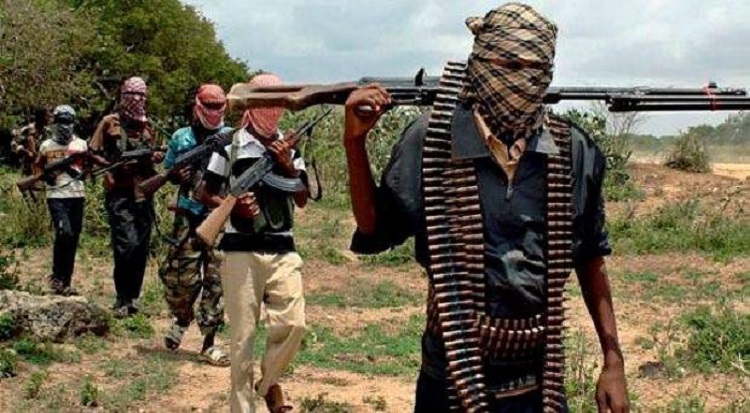Nigerian politics is defined almost wholly against northern Nigeria. The phrase ‘the north’ is the most frequently used term in Nigerian political talk of any kind. Nearly every issue of politics or policy in this country is explained simply in terms of how it relates to ‘the north’, directly or implicitly. Yet, reading Nigerian newspapers, you will wonder whether ‘the north’ itself is a person, a place, a people, or all three.
Headlines in newspapers in just the past week alone tell this story. ‘The north’, framed and understood as the problem with Nigeria, was implicit in all the week’s top stories, from the Southern Governors’ ban on open grazing, the state police bill, the Petroleum Industry Bill (PIB) passed into law, the call for power shift, down to the professionally inappropriate titles of opinion pieces “Shame on Northern Nigerians” by the senior journalist Dan Agbese in The Guardian of Friday 9th July, and “El-Rufai and the Cows in Human Skin” by Abimbola Adelakun in The Punch the day before.
- The Southern governors’ meeting
- Buhari, El-Rufai, ACF mourn as ex-Kaduna Dep Gov, Bantex, dies at 64
Across all these stories, and many more, ‘the north’ and ‘northerners’ are presented as the unreasonable and intolerable ‘Other’ to which everything must be defined against or as the problem everyone else must avoid. This harping on compatriots as the only problem with the country is unlikely to abate any time soon. But we must recognise that words have consequences in politics, for individuals and institutions alike.
The relentless negative profiling of northern Nigeria makes the political climate too hostile for generating and implementing sensible solutions to our somewhat different but still collective problems as a country. It hardens hearts and minds along diametrically opposed lines of division, so much that whatever is good for northern Nigeria is automatically assumed to be bad and unacceptable for the south. It constricts the space for meaningful debate and poisons any opportunity for compromise, itself the foundation for peaceful coexistence. Above all, constitutes a moral and political de-legitimation of the region and its people.
That is how we arrived at this point in Nigeria today where whether you are a candidate for national office, a holder of such an office, a federal civil servant, an employee of a company, or quite simply a passenger on a bus, if you are a ‘northerner’, you will need to demonstrate and legitimize yourself as acceptable in many contexts. Other Nigerians are automatically accepted just for being non-northern, or more specifically for being non-Muslim northern. Indeed, millions of northern Nigerians have had to carry this additional burden of identity politics all their lives in their own country.
This must be said. But while we are saying it, we must all recognise that for us in the north, it is also time for some sober reflection and soul-searching. Northern Nigeria is quite frankly being overrun by a vile form of banditry. This crisis has been festering for almost a decade and has spread from Zamfara State to most of the North West and Niger State. The north cannot grow and develop in a climate of perpetual insecurity. But what then can be done?
The first task is to reconceive the problem. It has been said that unlike Boko Haram, the bandits have no ideology and are out solely for the money. I beg to differ. The frequent, systematic and large-scale use of violence to achieve any ends is inevitably tinged with an ideology of some sort, whether the perpetrators declare this or not. The bandits clearly don’t value human life. And beyond the money, they seem to enjoy violence for its own sake. They revel in their power over innocent citizens and the seeming powerlessness of government and the society to put an end to it all.
This is violent nihilism, an extreme disdain for human life and society’s values, and so entirely ideological, even if the perpetrators wouldn’t agree or know it so. Just a few days ago bandits reportedly killed 40 people in five Zamfara villages. Who kills 40 people just to extort money from villagers? What is the point of killing five students to force compliance with demands for millions of naira for the release of 16 other students? We have all seen videos of bandits boasting about their power to unleash mayhem, including on soldiers and policemen, not just ordinary citizens. We have heard audios of them taunting their prospective victims with violence and death.
The constant in all of these is that the bandits seem to be having fun killing people. This is no longer much about money. It is about the love of violence purely for its own sake and the realisation that one has absolute power over the lives and properties of other people without consequences to oneself. This is what we are dealing with and it should help us realise that we cannot solve this form of banditry with persuasion, negotiation or amnesty. The only way to deal with violent nihilism is to make the nihilist understand that life actually has a meaning for the rest of us.
The second task is to be clear about who is responsible for doing something about it. Back in February, the Minister of Defence, Major General Bashir Magashi (rtd) called on Nigerians to stand up and defend themselves against bandits and not be “cowards”. At the time, this rang like abdication of responsibility by the federal government, and the minister was roundly condemned for it. But it is also a sound advice. The security of our lives and livelihoods is the responsibility of all of us. The question is what role each of us will play as a government, business or individual.
We can do three things. First, all governors, traditional leaders and speakers of Houses of Assembly in the 19 northern states could meet with President Buhari and leaders of the National Assembly to draw up a plan for recruiting, training and equipping up to 10,000 personnel specifically for engaging banditry in the north over the next few years. Other details such as name, legal framework and constitutional standing for such a force and its relationship with existing security forces like the police and the military could also be worked out harmoniously.
Next is to work out a funding mechanism for such a force. The federal government could be persuaded to cover a percentage of the total costs for it, say 30 per cent. The state governments and all local government areas in the region could cover a further 30 per cent of the total costs. We, northerners, could then cover the reminder 40 per cent. Every household and every business in northern Nigeria could be taxed a certain sum monthly, however small, to be paid directly into one single treasury account for security in the north.
Finally, governments could mount an inclusive public campaign towards this. These may or may not work. But my real point is that we must do something and be genuinely seen to be doing something, more than whatever it is we have been doing about this. Banditry in the north is the real threat to the security of the Nigerian state right now, far more than any threats that Nnamdi Kanu or Sunday Igboho may pose.

 Join Daily Trust WhatsApp Community For Quick Access To News and Happenings Around You.
Join Daily Trust WhatsApp Community For Quick Access To News and Happenings Around You.


